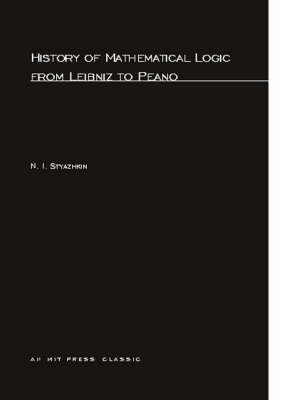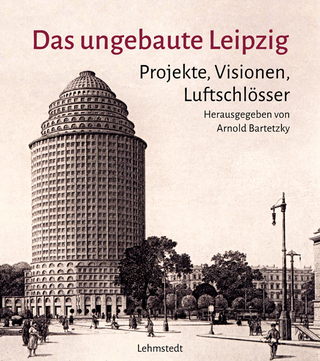
History of Mathematical Logic from Leibniz to Peano
Seiten
1975
MIT Press (Verlag)
978-0-262-69049-2 (ISBN)
MIT Press (Verlag)
978-0-262-69049-2 (ISBN)
- Titel ist leider vergriffen;
keine Neuauflage - Artikel merken
The flourishing of mathematical logic in the twentieth century into its present state as a vigorous, self-sustaining branch of modern mathematics could not have come about without the careful nurturing of its conceptual roots in the several centuries preceding. The purpose of this history is to present the development of mathematical logic up to its critical stage after which such work as Russel and Whitehead's Principia Mathematica could proceed apace. The method of the history is dual in approach and moves in contrary motion one approach follows the logical (is sometimes devious) development of the subject from the past toward the present, the other traces back the essential concepts of modern logic to their sources in the past. The author's main attention is devoted to the development of logical symbolism (paralleling the earlier rise of algebraic symbolism) that could be used to treat in a mathematically formal way the deductive parts of classical Aristotelian logic.
An introductory chapter sets the stage for the advent of the scientific era and reviews the state of logic as it emerged from the Middle Ages of special interest is the treatment of modal logic and the theory of semantic paradoxes. The direct forerunners of Leibniz himself, especially his methodological principles and the three stages in the development of his Logical Calculus. Next, the Logic of Relations of Johann Lambert and the intentional Logical Calculuses of Maimon and Castillon are discussed. The work of Bentham. Hamilton and Drobisch is seen as an anticipation of that of Boole. Boole himself, and his Calculus of Classes., is the subject of a full chapter. The final chapter fiscusses the contributions of Jevons, Schroeder, Peirce ("the father of semantics"), Frege, and Peano.
No extensive training in mathematical logic itself is required on the reader's part: the book will thus prove valuable in philosophical development and the history of Western ideas.
An introductory chapter sets the stage for the advent of the scientific era and reviews the state of logic as it emerged from the Middle Ages of special interest is the treatment of modal logic and the theory of semantic paradoxes. The direct forerunners of Leibniz himself, especially his methodological principles and the three stages in the development of his Logical Calculus. Next, the Logic of Relations of Johann Lambert and the intentional Logical Calculuses of Maimon and Castillon are discussed. The work of Bentham. Hamilton and Drobisch is seen as an anticipation of that of Boole. Boole himself, and his Calculus of Classes., is the subject of a full chapter. The final chapter fiscusses the contributions of Jevons, Schroeder, Peirce ("the father of semantics"), Frege, and Peano.
No extensive training in mathematical logic itself is required on the reader's part: the book will thus prove valuable in philosophical development and the history of Western ideas.
| Reihe/Serie | History of Mathematical Logic from Leibniz to Peano |
|---|---|
| Verlagsort | Cambridge, Mass. |
| Sprache | englisch |
| Gewicht | 467 g |
| Themenwelt | Geisteswissenschaften ► Geschichte |
| ISBN-10 | 0-262-69049-7 / 0262690497 |
| ISBN-13 | 978-0-262-69049-2 / 9780262690492 |
| Zustand | Neuware |
| Haben Sie eine Frage zum Produkt? |
Mehr entdecken
aus dem Bereich
aus dem Bereich
eine kleine Soziologie des Heavy Metal
Buch | Softcover (2023)
Kohlhammer (Verlag)
20,00 €
Projekte, Visionen, Luftschlösser
Buch | Hardcover (2023)
Lehmstedt Verlag
30,00 €


